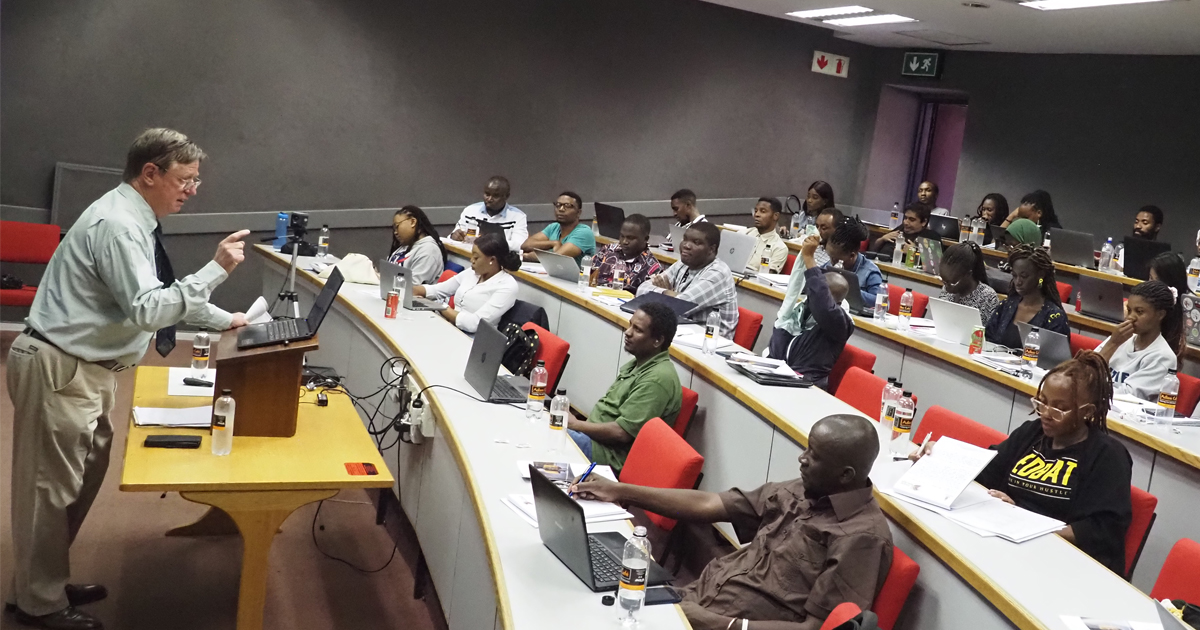Justice Johann van der Westhuizen, retired judge of the South African Constitutional Court, delivering a public lecture at the Centre for Human Rights, Faculty of Law, University of Pretoria, underlined the importance of progressively realising the socio-economic rights guaranteed under the South African Constitution. He made a specific plea for the government to report annually to the South African Human Rights Commission (SAHRC) on the extent to which it is realising socio-economic rights.
Section 184(3) of the Constitution is unequivocal in imposing this reporting obligation: ‘Each year, the South African Human Rights Commission must require relevant organs of state to provide the Commission with information on the measures that they have taken towards the realisation of the rights in the Bill of Rights concerning housing, health care, food, water, social security, education and the environment.’
Judge Van der Westhuizen noted that almost thirty years into South Africa's democracy, millions of people are still poor and without their basic needs being met. South Africa remains the most unequal country in the world. “It is almost cynical to tell the mother of a toddler who died in a pit latrine that our world famous Constitution protects everyone’s rights”, he observed.
To hold the government accountable to its constitutional duty to protect all rights, including socio-economic rights, the Constitution establishes chapter 9 institutions, like the SAHRC. The requirement of annual reporting by government departments is a way to ensure accountability. However, for several years now, this reporting has not happened. It would seem that either the SAHRC, or government, or both, are in breach of a direct constitutional obligation. A court of law may declare this to be the case, if approached with an application to do so.
The Judge noted that in the run-up to and during the negotiations regarding the drafting of the South African Constitution, it became clear that, in addition to civil and political rights, socio-economic rights (to housing, food, water, medical care and education) had to be expressly included. After centuries of colonialism and apartheid there was huge inequality between rich and poor.
The fear, however, was that courts would not be able to enforce these rights against the government and that, therefore, the constitutional guarantee of these rights would be no more than empty promises. In his view, such an eventuality could delegitimise the entire Constitution and jeopardise our constitutional democracy.
Consequently, socio-economic rights were cautiously included in the Constitution by using wording from international human rights instruments. A number of Constitutional Court judgments, such as the Grootboom and TAC cases, which addressed issues of housing and medical care, were important victories for the judicial enforcement of socio-economic rights.
However, courts cannot build houses, hospitals and schools. For these, political will and efficient government action are required. The state must use legislative and other measures to ensure progressive realisation of these rights. Even slow or no progress must be reported.
Judge Van der Westhuizen added: “The present situation is extremely dangerous for the survival of our constitutional democracy and the future of the protection of human rights. What would happen if the obligation to hold elections or to provide fair criminal trials is similarly ignored? Or, will political leaders then complain, but in the meantime ignore the plight of the poor? It might be more honest to leave poor people poor and dependent upon themselves, than to fool them into false promises in the document which is the supreme law of a country.”
Justice Van der Westhuizen made these remarks when he on 3 May 2023 addressed around 80 participants from all across Africa attending a course on the ‘Justiciability of socio-economic rights in Africa’. This one-week is part of a series of Advanced Human Rights Courses presented by the Centre for Human Rights.
For more information, please contact:
Prof Frans Viljoen
Director
Centre for Human Rights
frans.viljoen@up.ac.za
Dorcas Basimanyane
Advanced Human Rights Courses
Centre for Human Rights
basimanyane.k@up.ac.za


